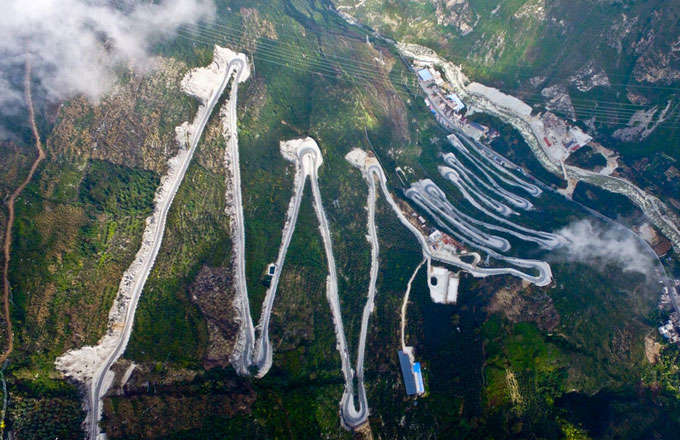Famous ancient bridges in China
China boasts a long history of building bridges, which not only connect people from different places and but have also become an important symbol of ancient Chinese civilization.
Of the many bridges in China, several are of either historic or engineering significance. The following are the best known:
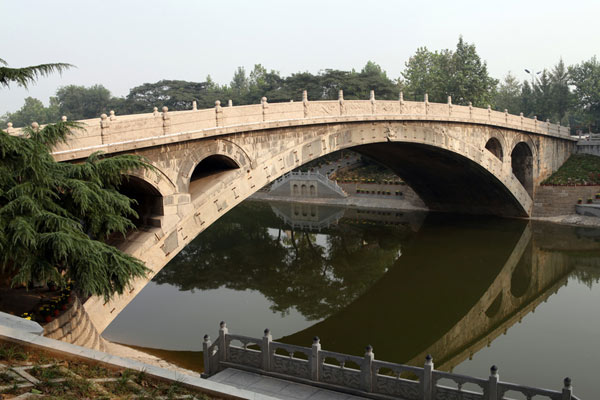
Zhaozhou Bridge
About 25 km from the southeast of Shijiazhuang city, Hebei province, built in AD 595 in the Sui Dynasty, Zhaozhou Bridge is the earliest and best-preserved open-spandrel stone arch bridge now in existence.
With a total length of 51 m, and a span of 37 m, the bridge is a single-arch stone bridge that has the longest span and history. The bridge is sophisticated yet elegantly constructed.
The two smaller spans in the shoulders of the bridge were an innovation in the history of bridge construction, giving the stone bridge an elegant design.
Zhaozhou Bridge has its own architectural features: the length of the span and the smoothness of the arc not only cut the use of materials but also facilitates travel. The two small spans in the two shoulders increase the drainage area to ease the flow of water, cut the use of materials, lightens the bridge, and enhances its stability.
With a history of about 1,400 years, Zhaozhou Bridge has gone through numerous natural disasters, including at least 10 floods, 8 wars and many earthquakes. In 1996, a 7.6 magnitude earthquake hit Xingtai, about 40 km from the bridge, but it remained safe and sound.
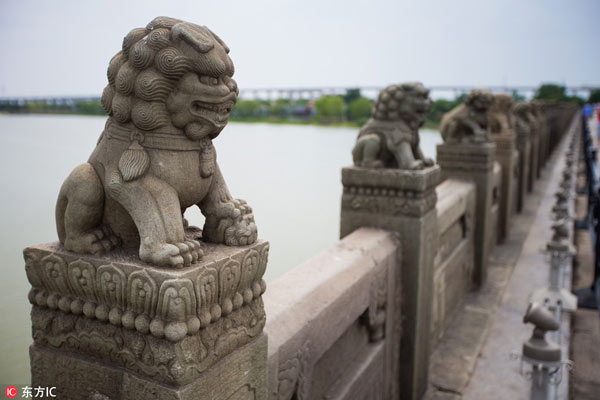
It is often said in Beijing 'there are countless lions on the Lugou Bridge' because there are so many finely carved lions guarding its span. This historic structure is also known as the Marco Polo Bridge, and is situated 15km southwest of Tiananmen. It was built in AD 1192 during the Jin Dynasty.
The 266-meter-long bridge is supported by 281 pillars. On each pillar stands a stone lion. The most intriguing feature of these beasts is the fact that there are more lions hiding on the head, back or under the belly or on the paws of each of the big lions. Investigations to determine the total number of the animals have been carried out on several occasions but the results have proved inconsistent, ranging anywhere from 482 to 496.
A?famed battle broke out on the bridge on July 7, 1937, which?marked the start of the Chinese People's War of Resistance against Japanese Aggression (1937-45).
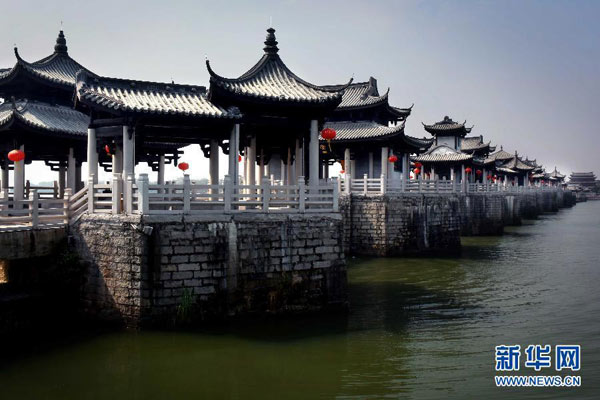
Guangji Bridge in Chaozhou, Guangdong province, was the world's first bridge that can be opened and closed.
It was originally built in AD 1174 during the Southern Song Dynasty, but the present construction was finished around 200 years ago.
The outer parts of the bridge are made of stone and dotted with airy pavilions, while the central part is made of wood and floats on boats. This floating section can be disconnected to allow boats to pass through the bridge.
The pavilions and pagodas along the bridge are engraved with beautiful calligraphy and carved images, some a thousand years old.
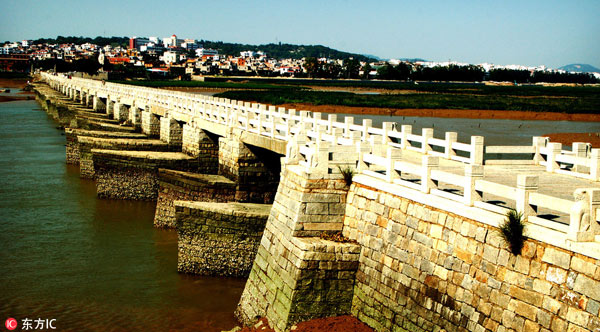
Luoyang Bridge
Luoyang Bridge in Quanzhou, Fujian province, was built in AD 1053 in Northern Song Dynasty.
Built with granite, the bridge features ship-like piers and a unique method of reinforcing the foundation. The ship-like piers easily cut the rapid current of the river.
To reinforce the foundation of the bridge, oysters were bred under the bridge because the liquid they secreted would help to bind the piers and the footstones together. This is the first time an organism was used to assist in reinforcing the structure of a bridge anywhere in the world.








